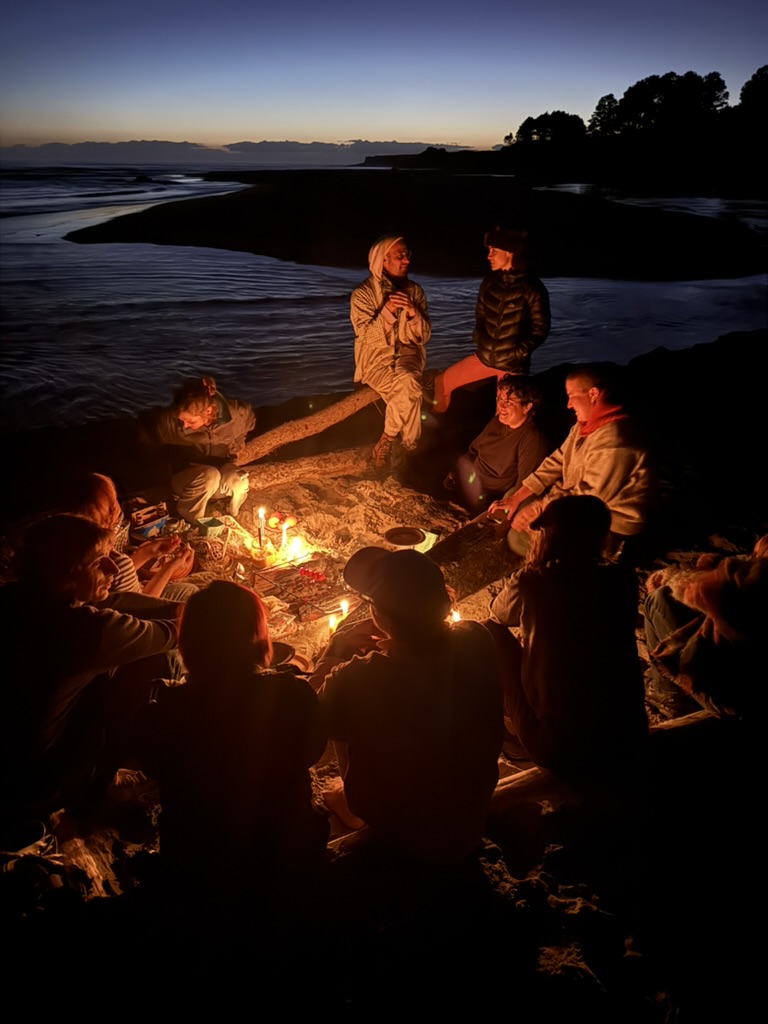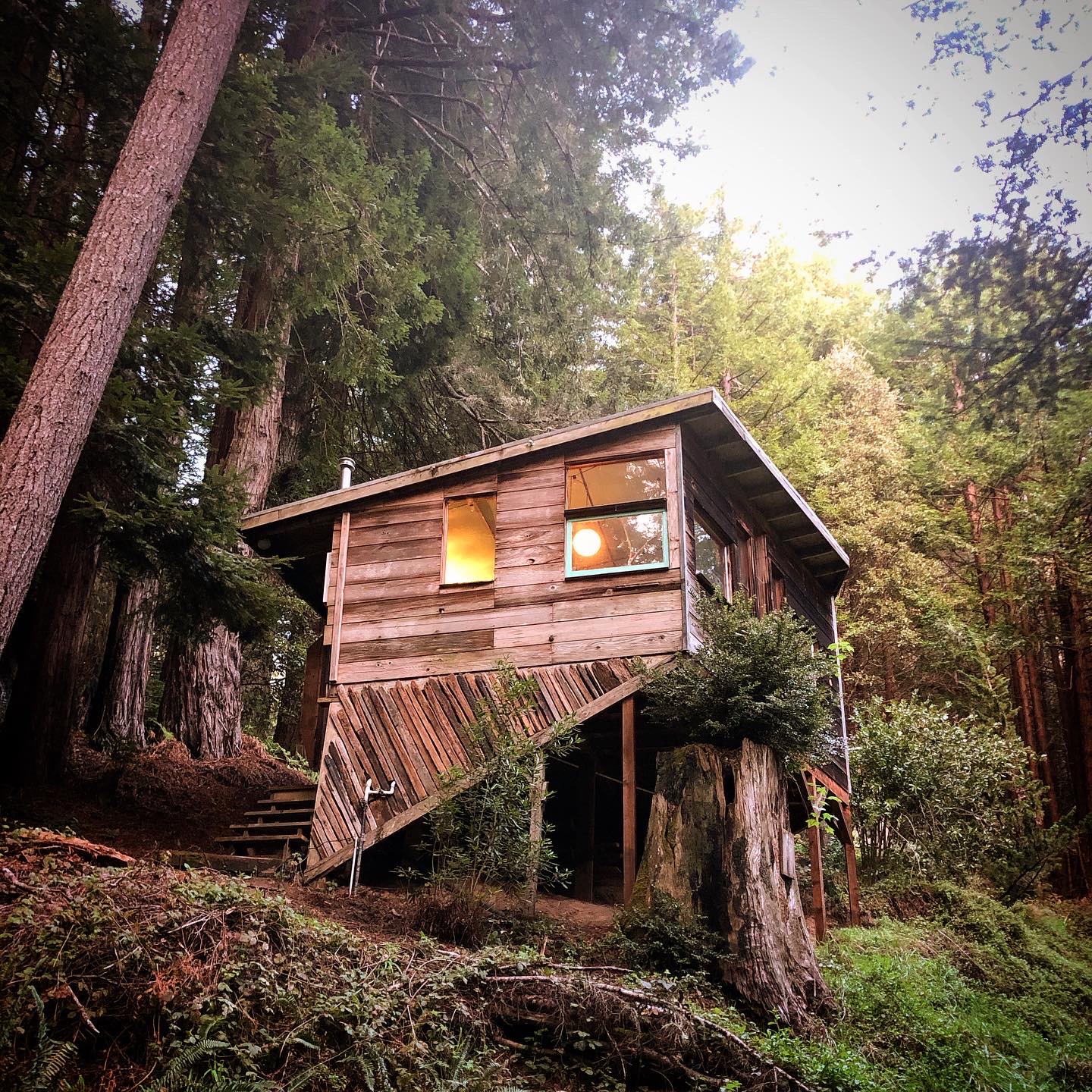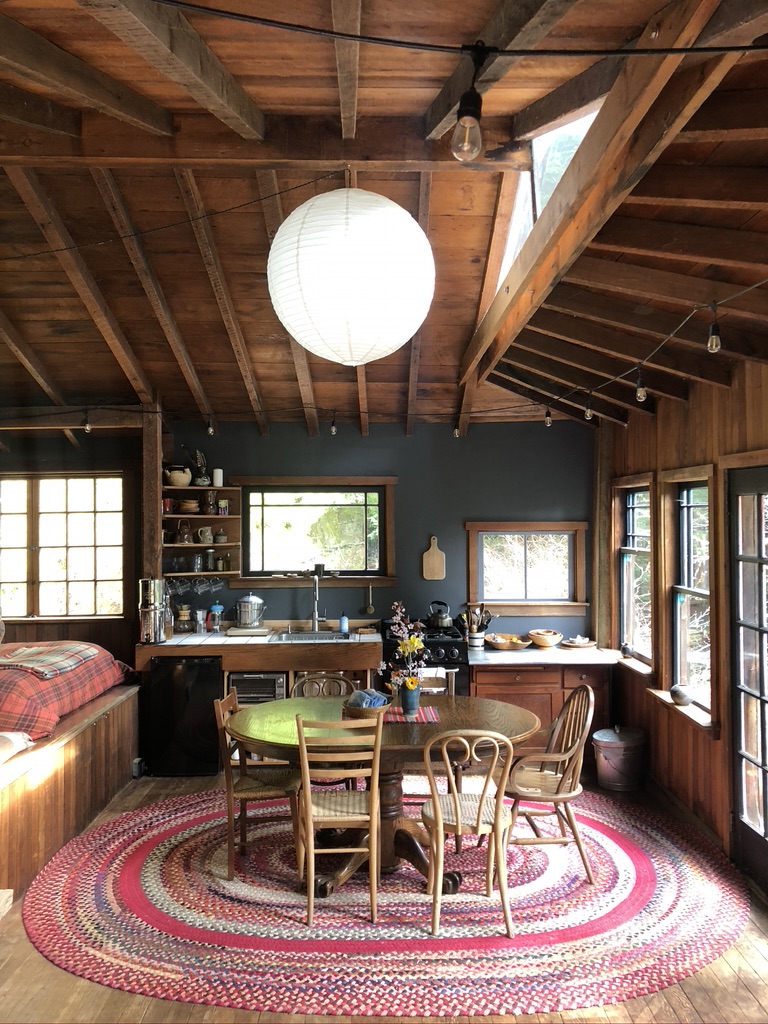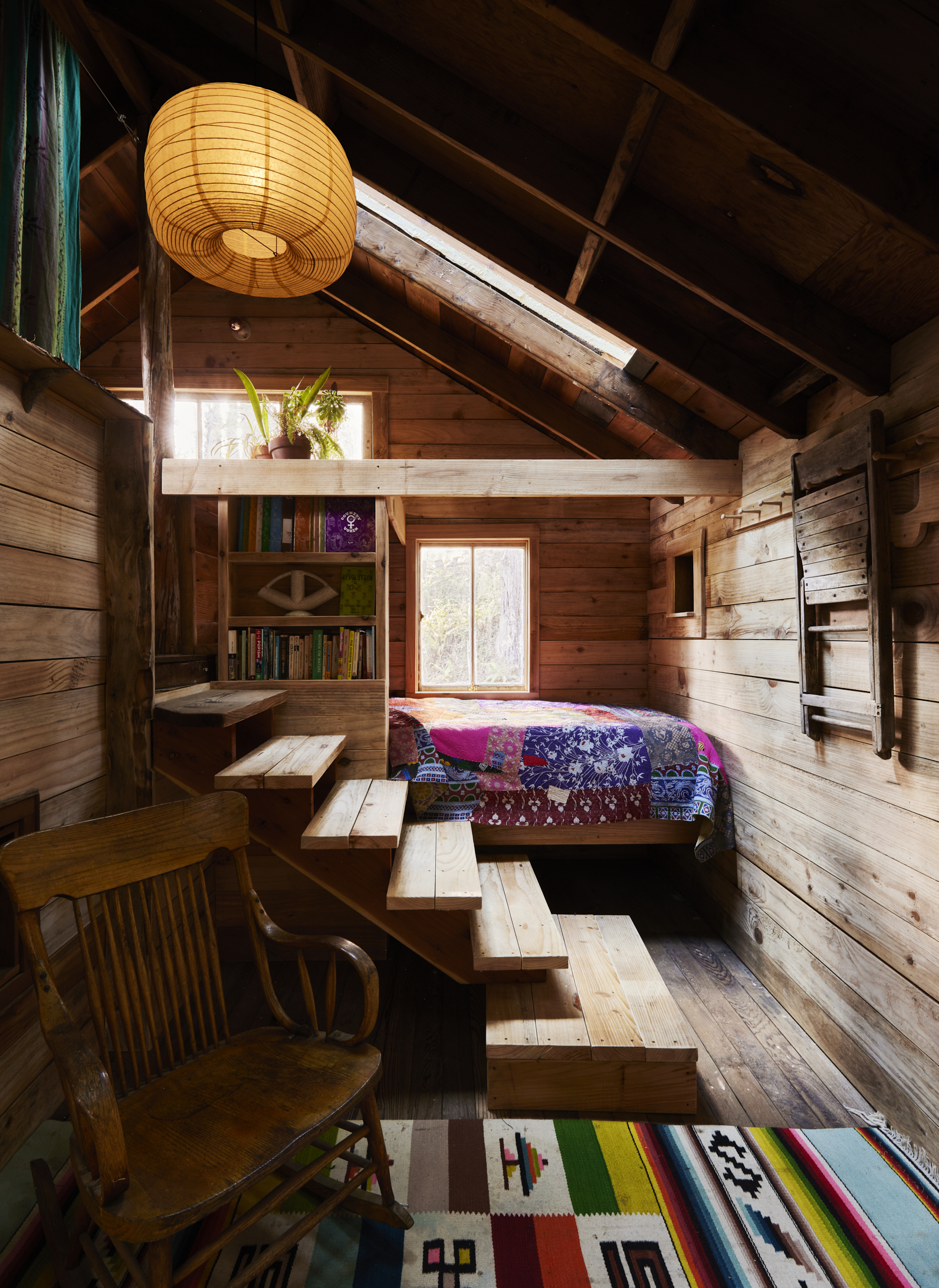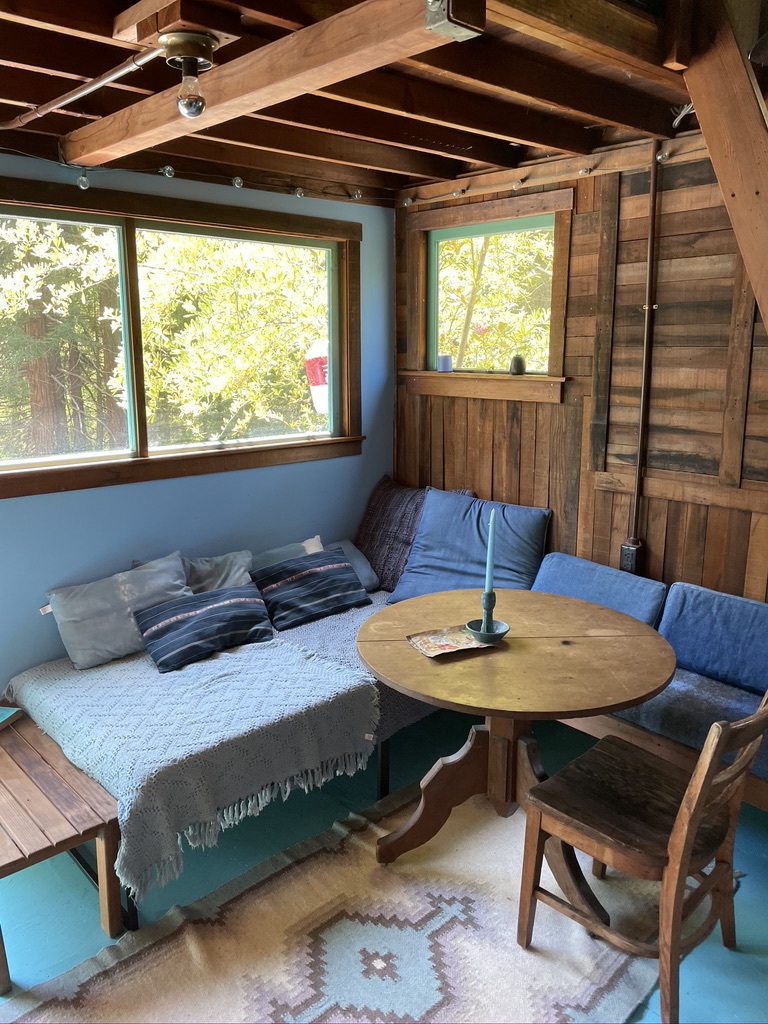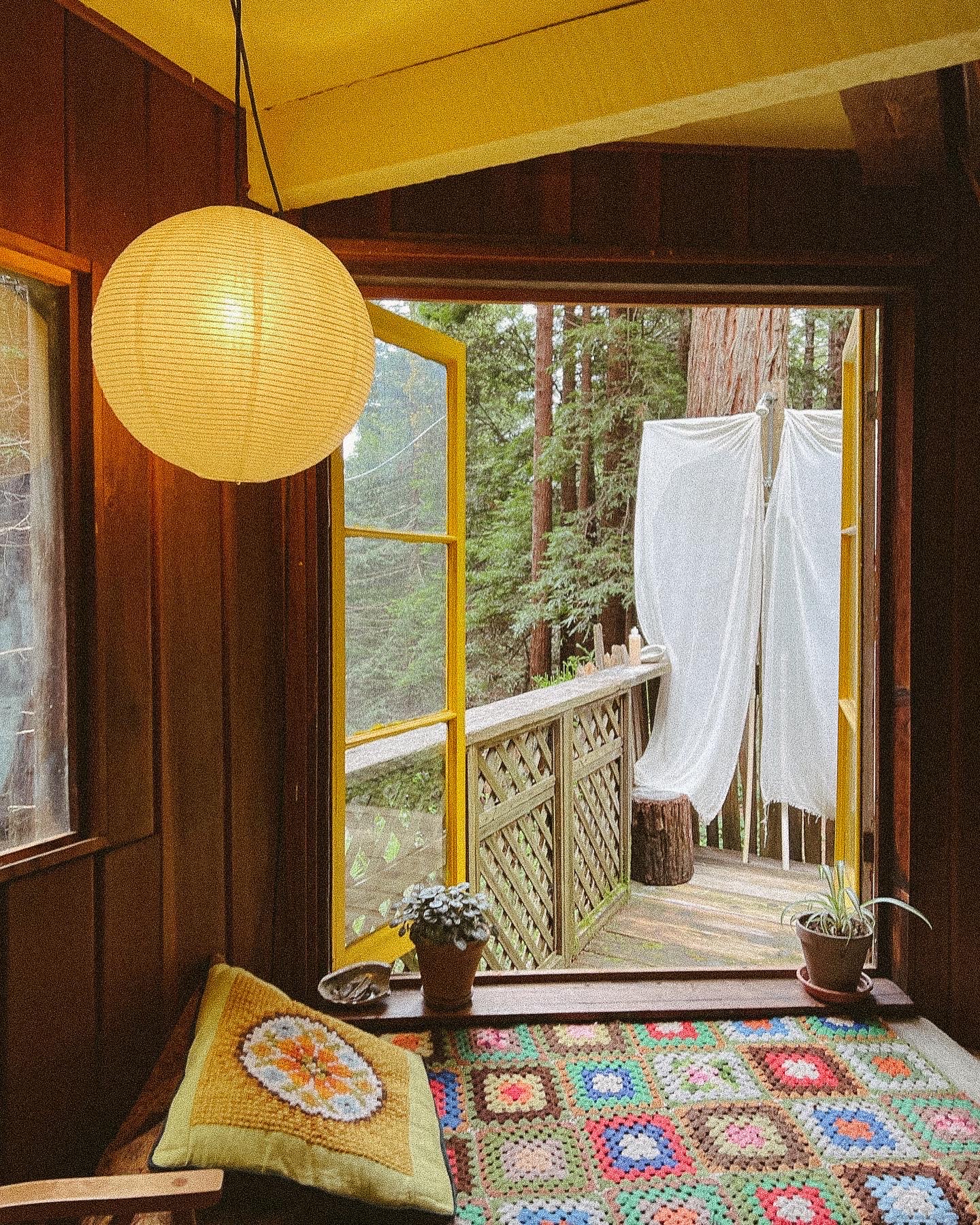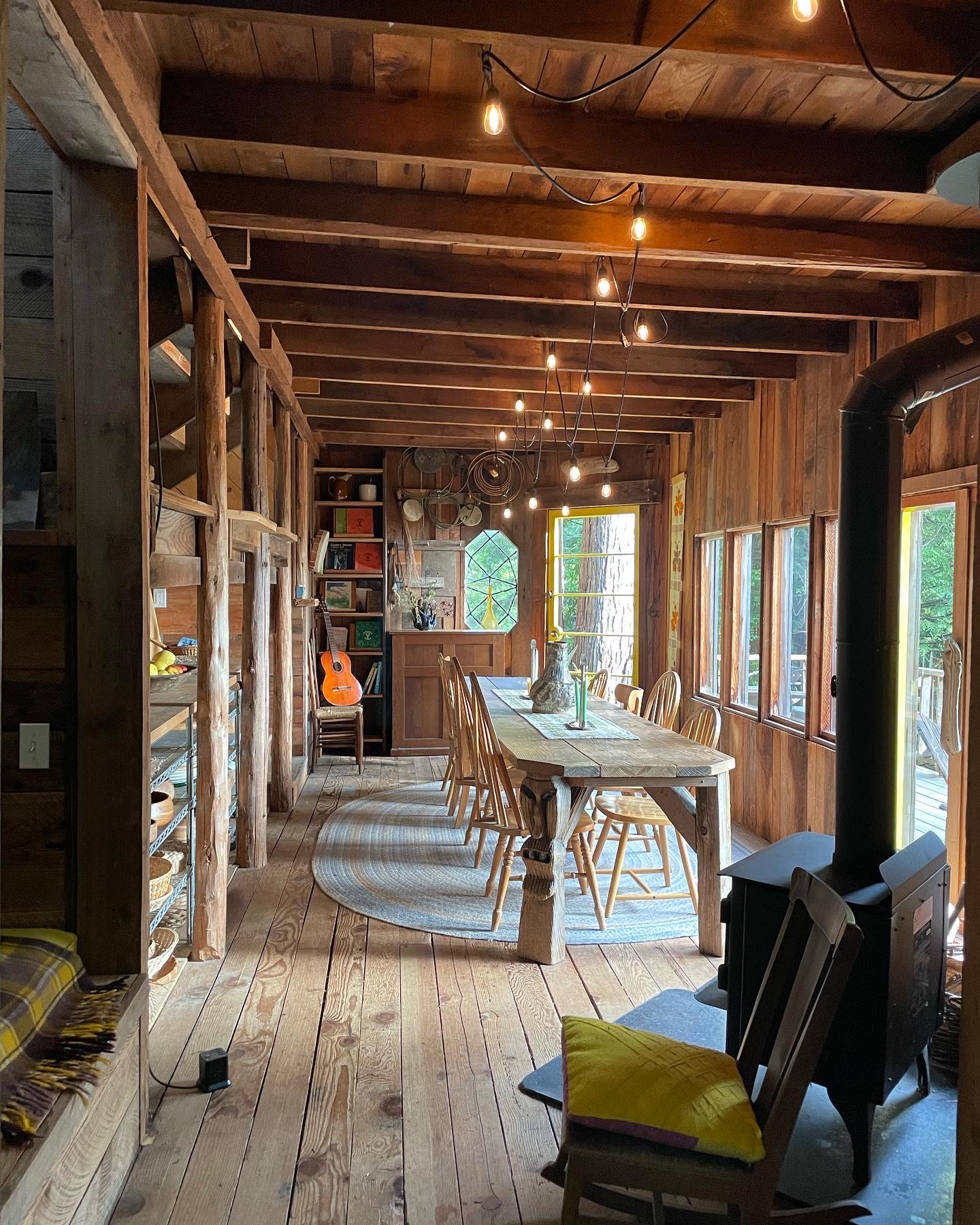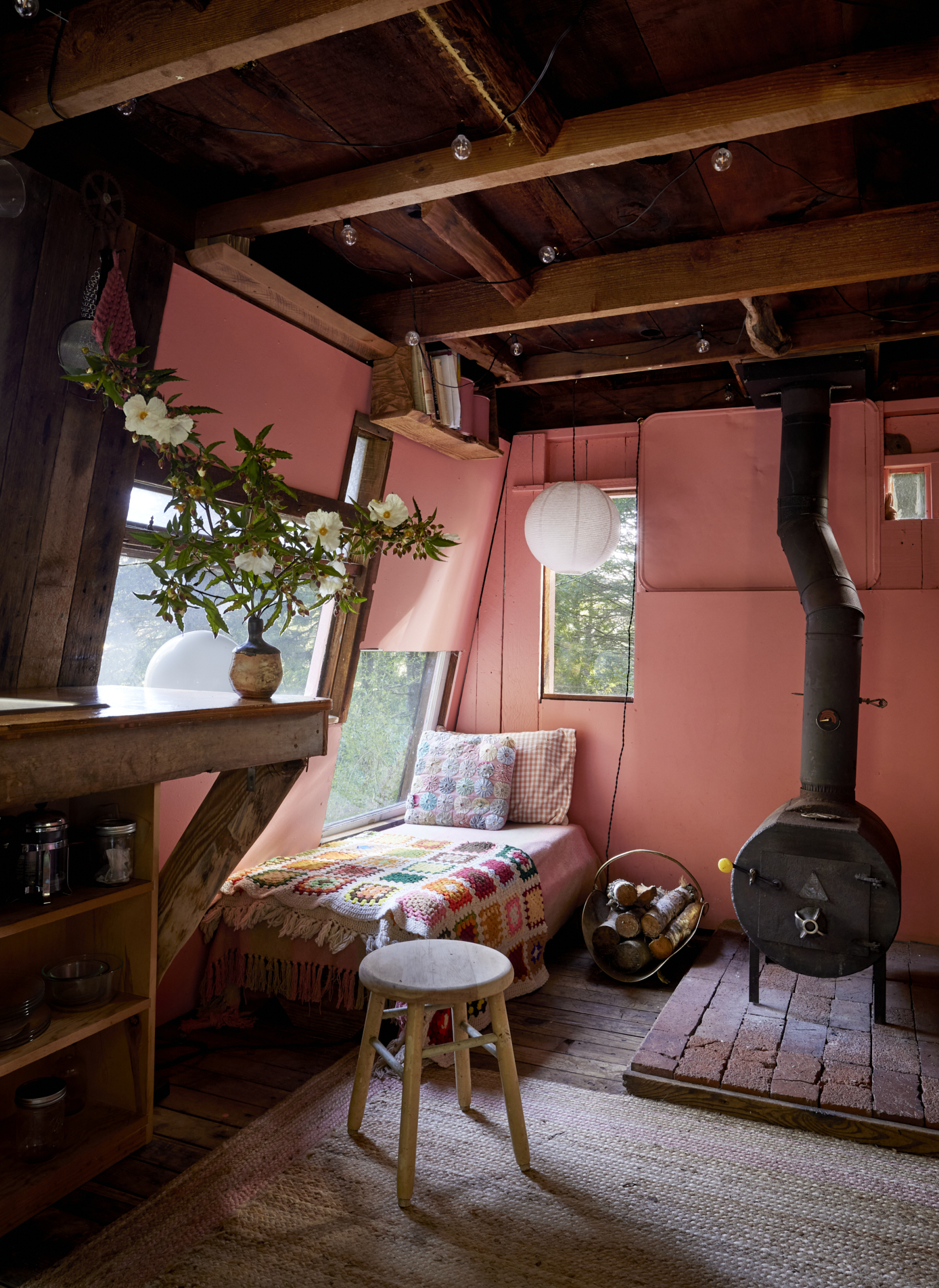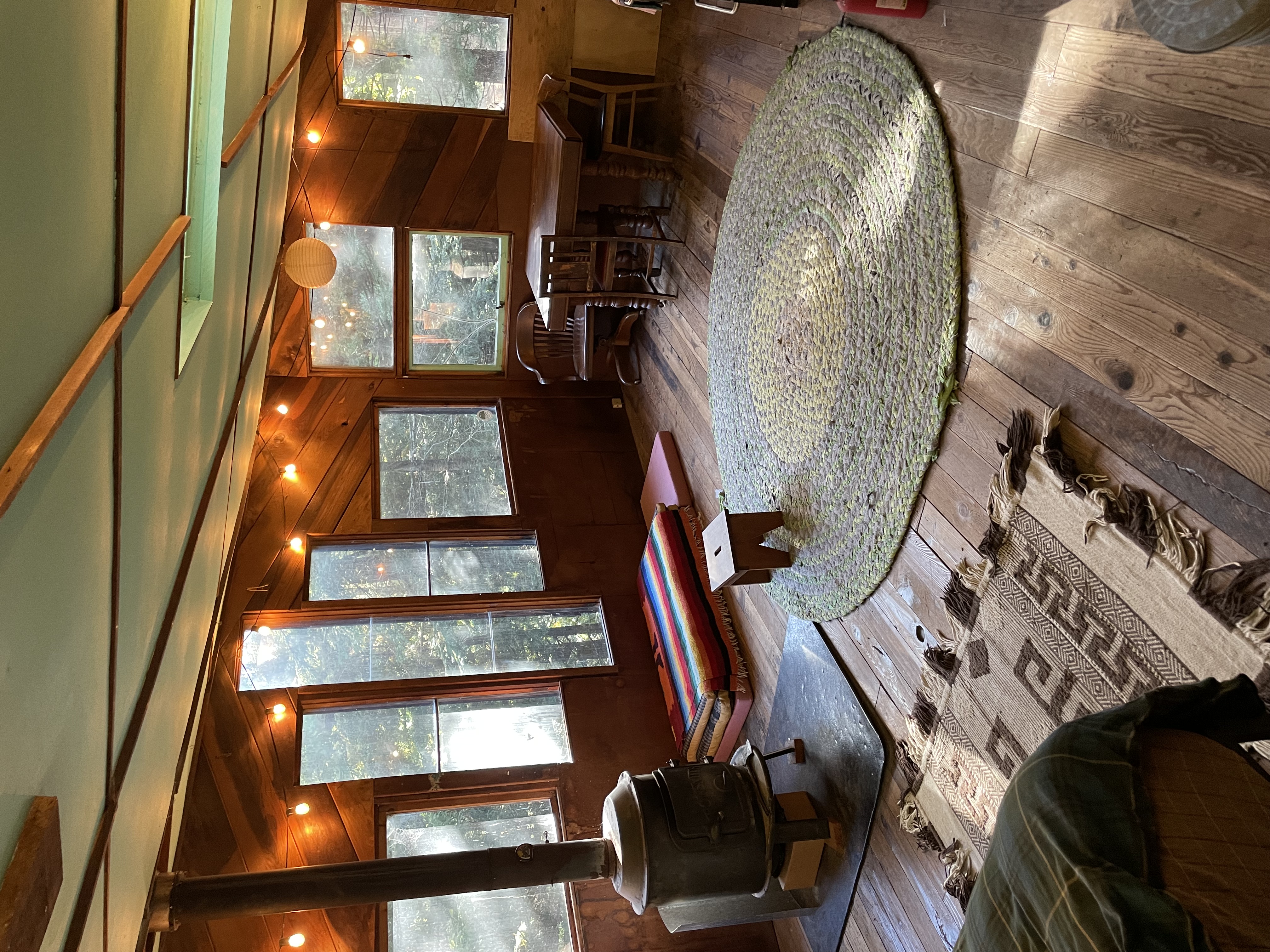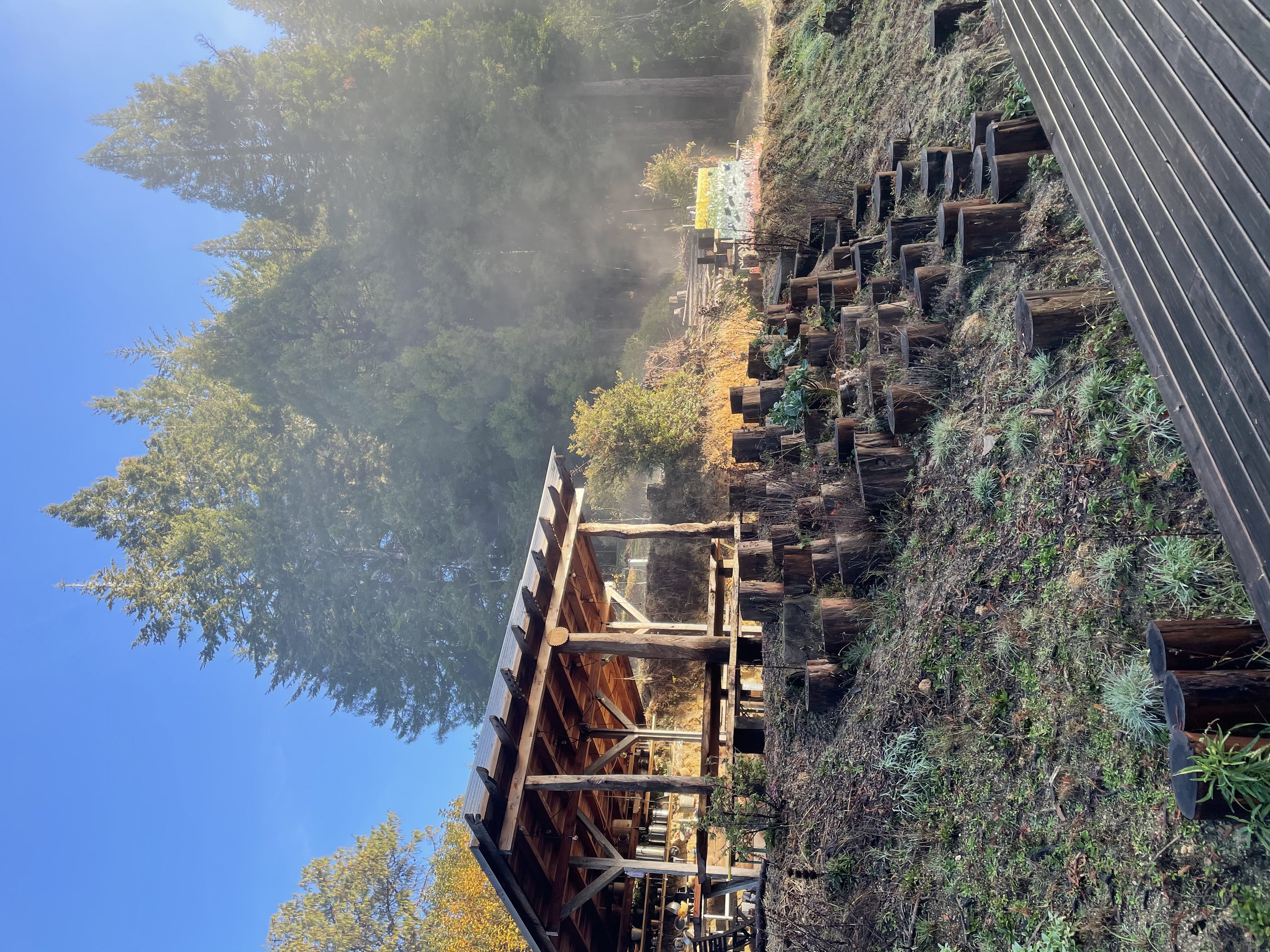Salmon
Creek
Arts
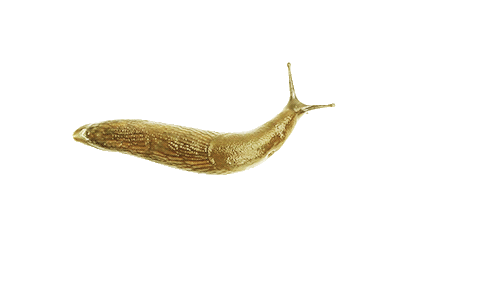
- 🎏 SCHOOLS OF SALMON CREEK: Free land-based student-run program from Sep 1 to Oct 26. Apply by Mar 4.
- 🔔 LIVE AT SALMON CREEK, Community Rentals: 1 week stays through Apr 5 & mostly monthly stays thereafter.
Salmon Creek Arts runs the year round arts community at Salmon Creek Farm, a sanctuary of precious riparian and coast redwood habitat on Central Pomo land established as a counterculture commune in 1971, now a long term living art project shaped by many hands.
We cultivate expanding communities of artists, each coming with something to offer the commune, learning from each other and the land. There is time to slow down, space to take a step back, the chance to live close to the land, to participate in its cycles, dwelling in modest hand-crafted spaces within a communal free-range wild wooded environment.

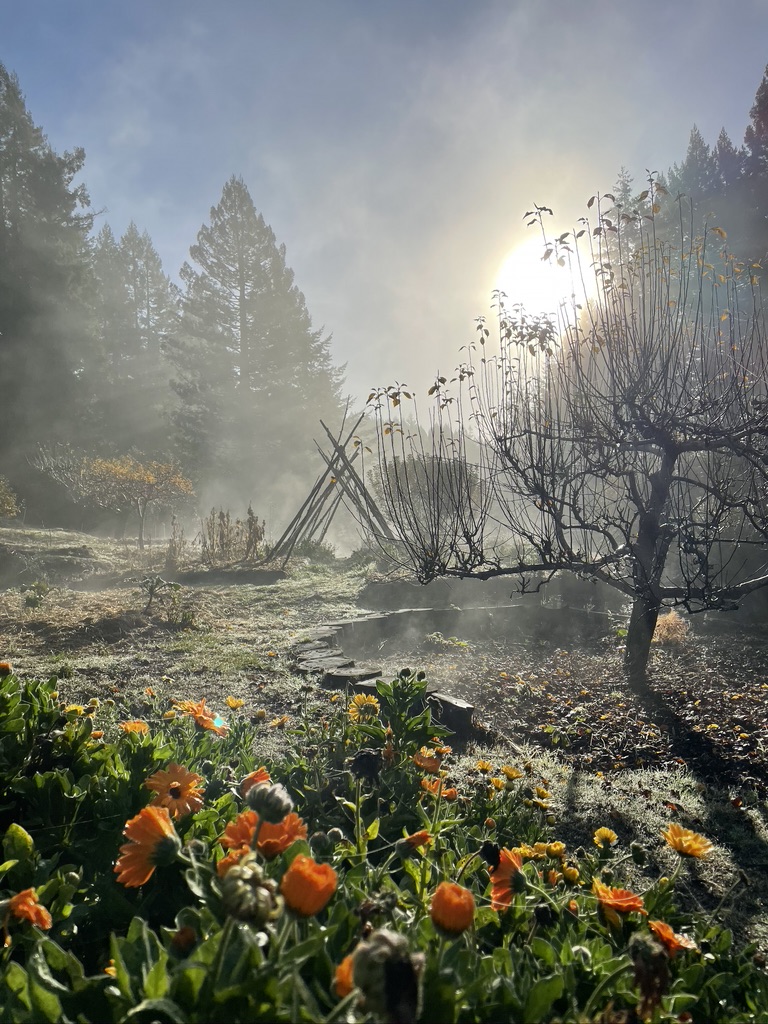
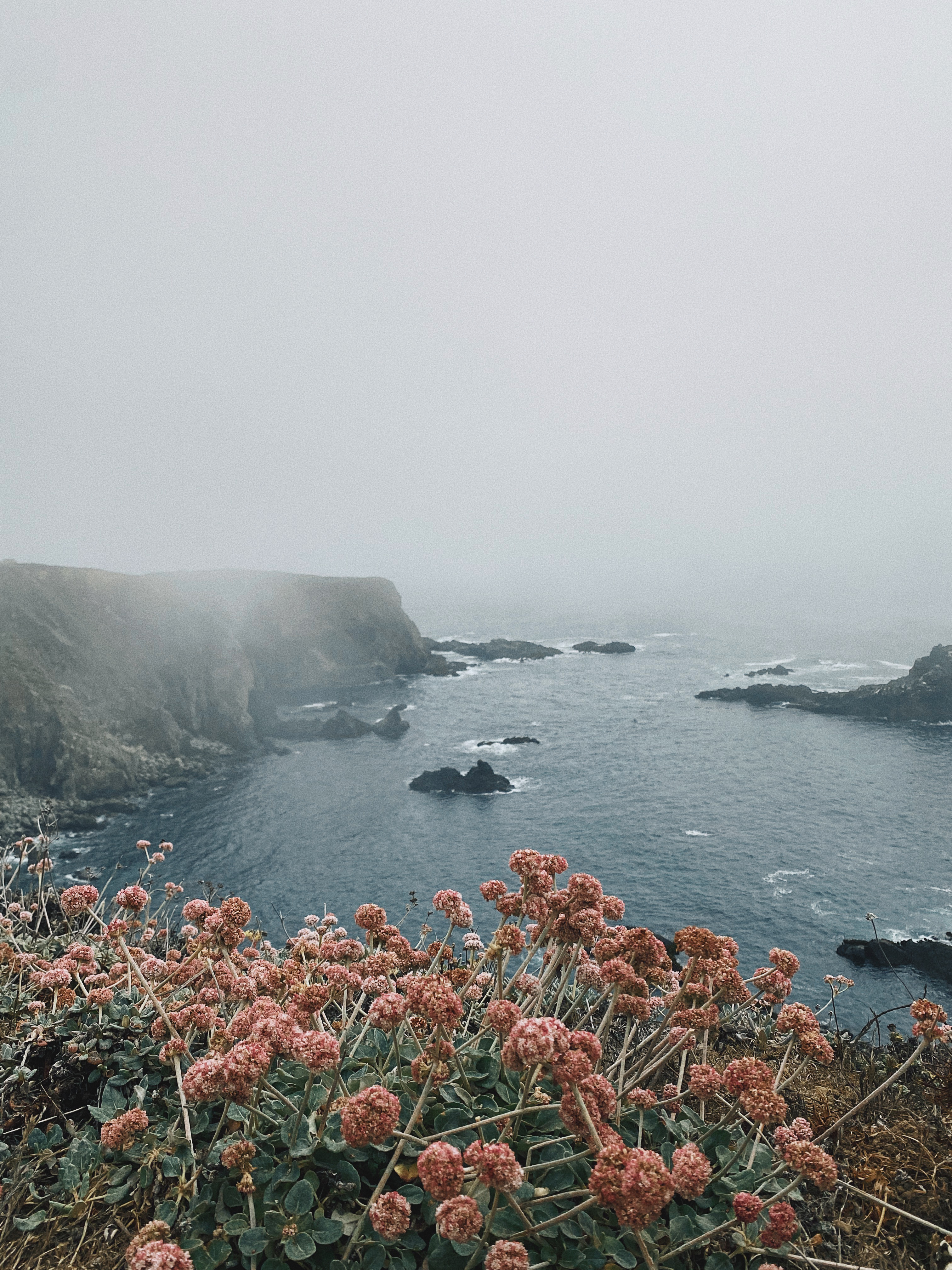
Our central program Schools of Salmon Creek is a free two month land-based student-run school focused on the living arts related to body, craft, food, land, shelter, and stewardship.
Salmon Creek Farm is located on 33 acres of second and third growth redwoods two miles from California’s Mendocino Coast. Old logging roads and foot trails criss-cross south facing slopes from sunny meadows, gardens, orchards, communal outdoor kitchen, and dance deck on top, to eight original commune cabins each nestled in their own nook of the terrain, across a ravine that bisects the land to abandoned off-grid cabins, and finally down to Big Salmon Creek in the valley. It is an especially good spot to feel your small place in the big cycles of life on earth.
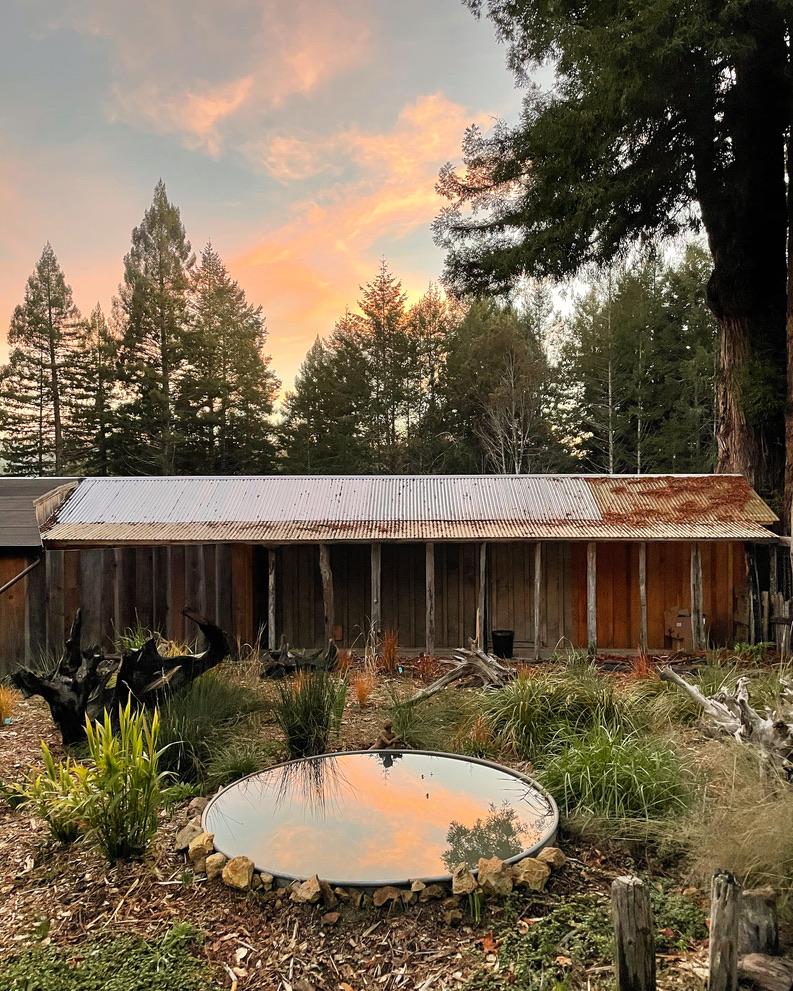

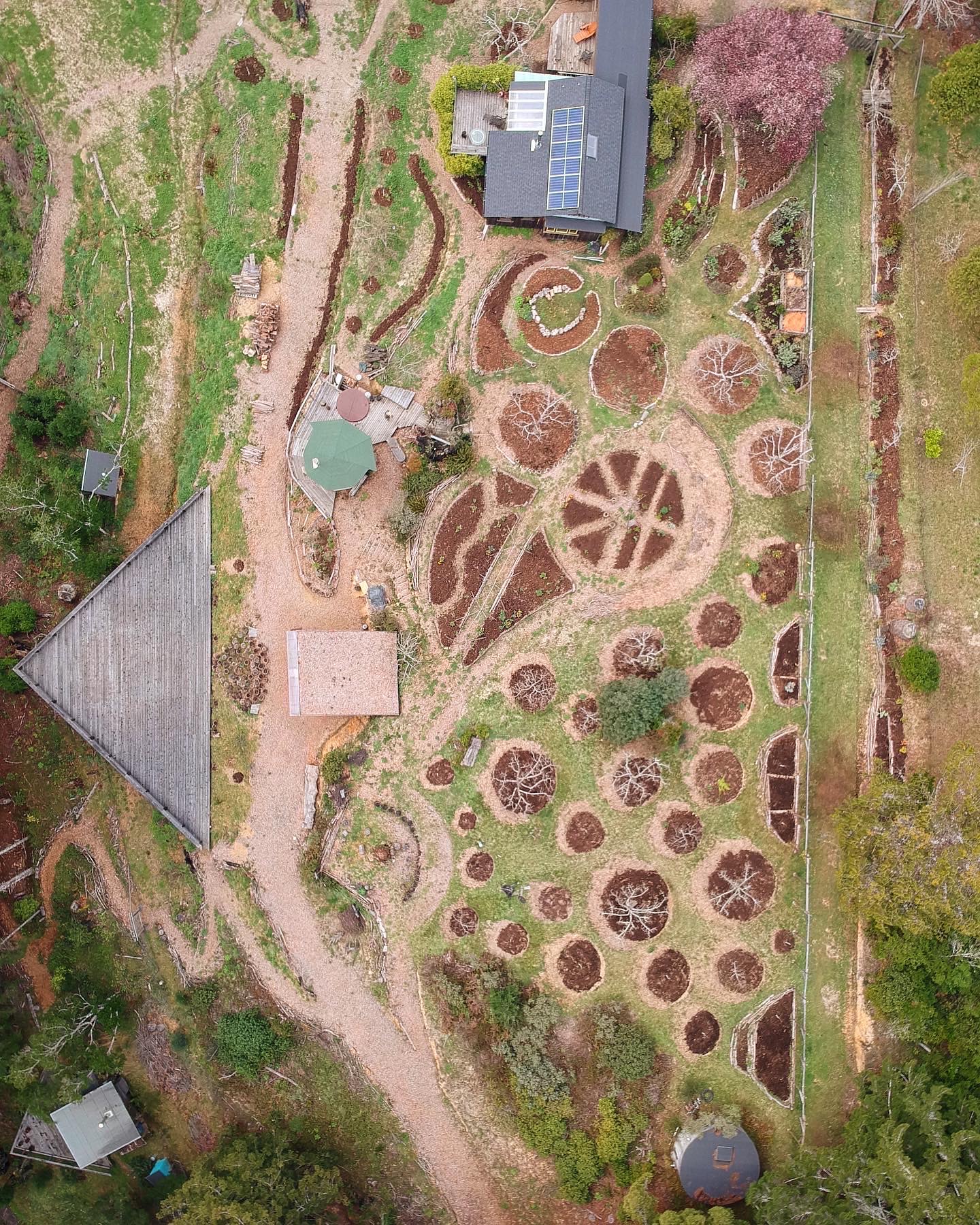
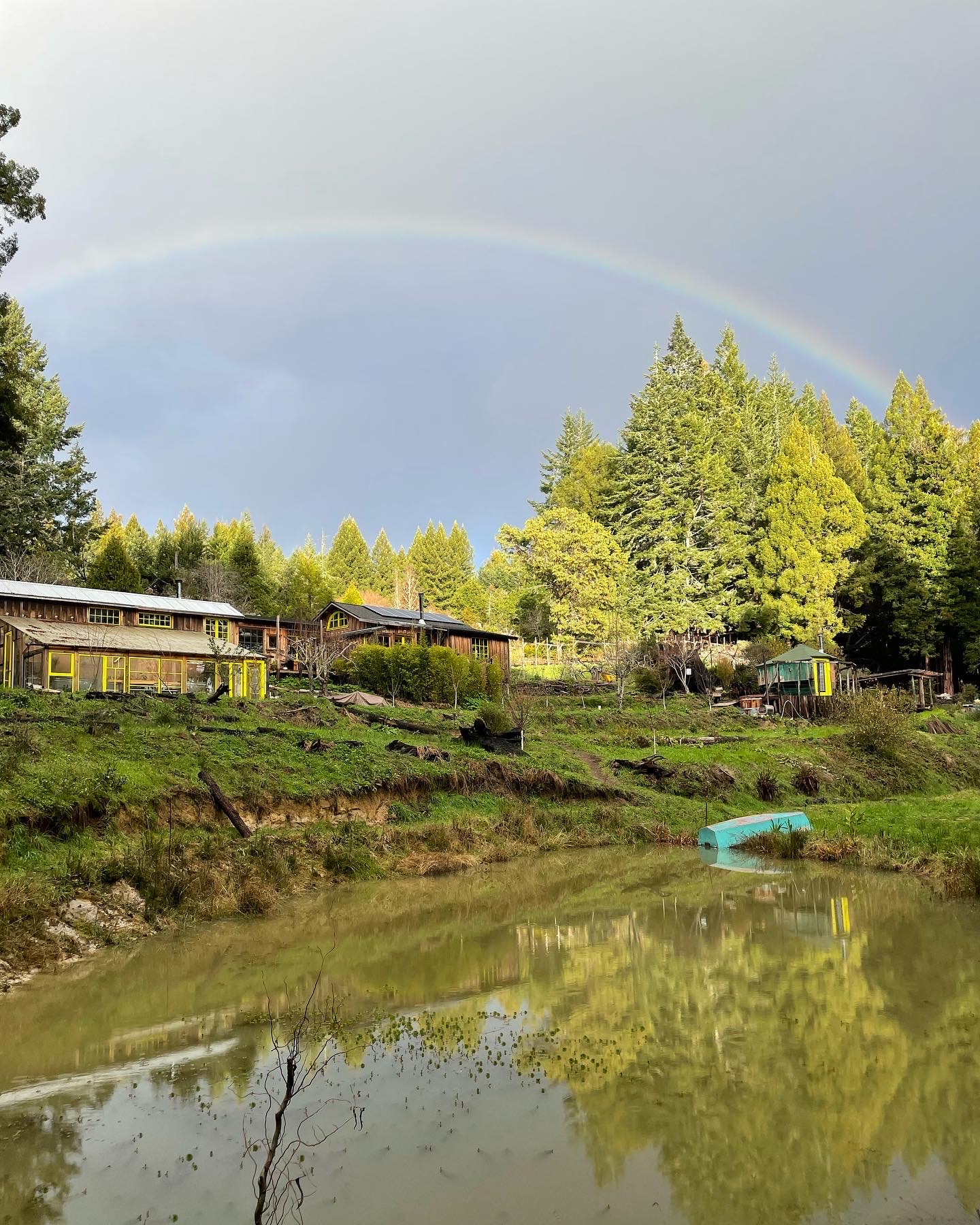
Salmon Creek Farm has been informally offering arts programs in a similar spirit since 2014, and now as an independent self-sustaining 501(c)3 non-profit organization, SCA takes over year-round operations - and eventually ownership - of Salmon Creek Farm.
EMAIL office(at)salmoncreekarts(dot)org
EMAIL office(at)salmoncreekarts(dot)org
Live at Salmon Creek:
Community Rentals 🔔
Salmon Creek Farm is a 33 acre sanctuary of precious riparian and coastal redwood forest habitat, on Central Pomo land. In the 1870’s it was clearcut for lumber and burned for pasture. In 1971 the commune was established during turbulent times by a group of young visionaries seeking less extractive and more intentional ways of living in what came to be known as Albion Nation. Now in the hands of the 501c3 Salmon Creek Arts, we imagine this sanctuary serving as a pocket of light, where you might journey to refuel for what it is we need to do on the planet.
We are returning to a more commune-like existence with cabins open to stays of a month or more in between our workshop and school programs. Everyone is invited to participate in daily life close to the land, using and tending the gardens, orchard, and commons together. There is the possibility for both deep solitude - in private handcrafted iconic cozy cabins nestled among the coastal redwoods - and sociability with others sharing the land, our wider community on California’s stunning Mendocino Coast, and out to our ever expanding circles in the world. Read through to the end before requesting to schedule stays by the MONTH (at Rainbow, Moonlight, Walden, River, & Salmon cabins) or the WEEK (at Cedar).
Come with an intention for how you want to ‘spend’ your time, perhaps to take a step back for some critical distance from your daily life, a chance to create something new, a tranquil place to work remotely, or even a pause from projects and productivity altogether.
![]()
Cabins are reached by foot trails across 33 acres of south-facing coastal redwoods. Each occupies a unique secluded nook in our south-facing wooded slope. They are rustic (ie, a mouse may occasionally find it’s way in and something will need to be done) but they were lovingly built, rebuilt, repaired, furnished, and embellished by many hands over the years with scavenged and thrifted local materials.
Everyone on the land is in touch by group chat to announce meals, invite each other over, ask for help with something, organize an event, say “hey I’m going to town if anyone needs anything,” etc. The kitchen, dining room, and lounge at Dawn cabin; the OK (outdoor kitchen) and Dance Deck; along with the vegetable gardens and fruit orchard are communally used and cared for, with two hours per week contributed to commune life, like stocking the pantry, tending the compost, weeding the gardens, orienting new residents, and chopping firewood.
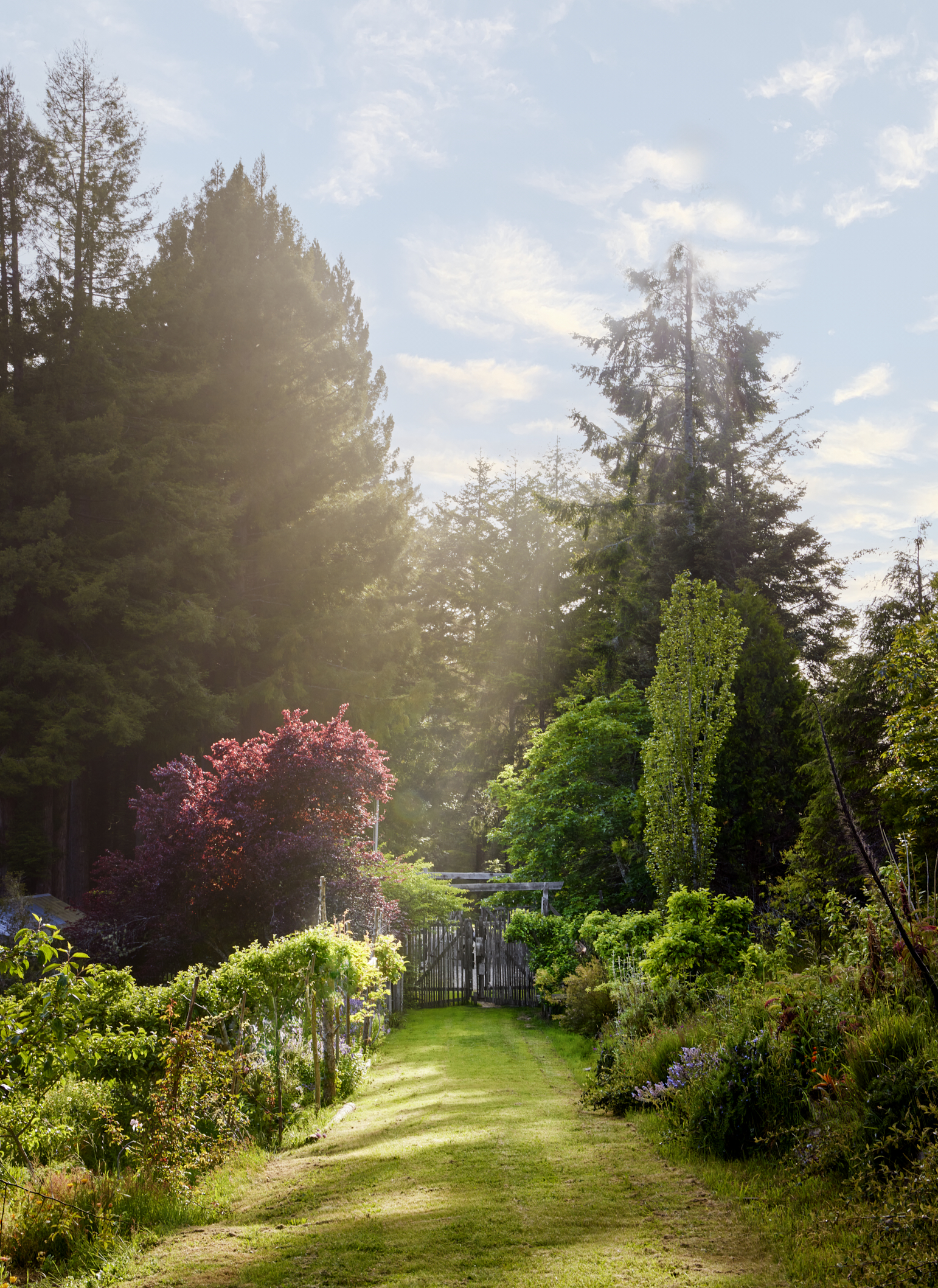
- You need a car to reach us and for the duration of your stay.
- Accessibility issues with all cabins, remote from cars and reached on foot.
- Cabins have fast wifi, kitchenettes, outdoor showers, outhouses, bedding, and wood stove heat (Sep-May only).
- Private kitchenettes have small fridge, sink, all utensils, drip/french coffee makers and grinder, and cook stove (most without oven). Meals not included.
- No guests or drop-in visitors though partners may visit for any amount of time.
- Queers and/or adults only months scheduled based on interest.
- Guests pack out their own refuse and prepare beds for next guests.
WEEKLY
- Arrivals exclusively Mondays 3-6pm (1:30-4:30pm Oct-Feb).
- Departures by 11am Sundays.
- Cedar cabin only from June 2026 (solo, couple, or 2 friends in 2 beds) $1900/wk.
- Other weekly RATES** (through March only) Solo at Salmon: $1000 | Solo or couple at Moonlight, Walden or River: $1200 | Solo or couple at Rainbow at $1750 | Up to 3 in 3 beds at Dawn at $2500.
SCHOOLS
of Salmon
Creek 🎏
The 2026 session is *FREE* September 1st to October 26th. Apply by March 4th. Application fee increases end of day (midnight PST) Sun, Feb 15th.
Schools of Salmon Creek is an annual land-based student-run free school for artists *of all kinds* at Salmon Creek Farm. We carry on the legacy of the original counter-culture commune to this next chapter on the land by considering abundance, care-taking, climate, community, ecology, embodiment, habitat, inter-dependence, mystery, resilience, resourcefulness, self-sufficiency, sensuality, shelter, sustenance, and stewardship; getting off screens and out of doors; where the teachers are the land and each other.
For artists seeking a deeper connection to the natural world as a context for their work while engaging with other artists - we offer time, space, community, and the opportunity to participate in the daily life of the Salmon Creek Farm sanctuary on the Mendocino Coast. It is a good place to step away from daily routines and surrender to the cycles of life close to the land as part of an improvised artist community.
This is a space for active engagement, with the land and each other, not a residency to bring work in process, nor a conventional school where artists produce work alone in a studio. There are no typical indoor facilities or production spaces, just a desk in your private cabin, the triangle Dance Deck, the Outdoor Kitchen, the orchards & gardens, the riparian valley of Salmon Creek, and 33 acres of coast redwoods.
How can we awaken all of our senses and be attentive artists in the world today?
For artists seeking a deeper connection to the natural world as a context for their work while engaging with other artists - we offer time, space, community, and the opportunity to participate in the daily life of the Salmon Creek Farm sanctuary on the Mendocino Coast. It is a good place to step away from daily routines and surrender to the cycles of life close to the land as part of an improvised artist community.
This is a space for active engagement, with the land and each other, not a residency to bring work in process, nor a conventional school where artists produce work alone in a studio. There are no typical indoor facilities or production spaces, just a desk in your private cabin, the triangle Dance Deck, the Outdoor Kitchen, the orchards & gardens, the riparian valley of Salmon Creek, and 33 acres of coast redwoods.
How can we awaken all of our senses and be attentive artists in the world today?
In some ways, you’re just another creature on the land, as soon as you arrive and as long as you stay, in communion with other creatures and the past and future humans: warmed by wood from the land that those before you may have chopped, sowing a garden and tending an orchard that may feed those coming after you, using water from the spring, contributing to the richness of the soil with your compost, while honoring and learning from indigenous knowledge.
It is a unique chance to expand your art practice while cultivating fundamental life and survival skills - that can provide a sense of agency and security to the precarious life of an artist - and who knows, they might even find their way into your art practice some day. Come with an open mind, the willingness to improvise, a spirit of generosity, the capacity to respond to the environment in adaptive ways, and a sense of adventure.
